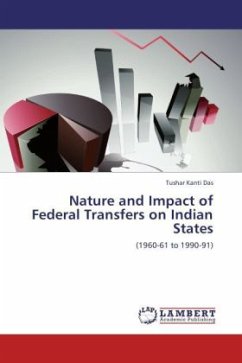Persistent budgetary difficulties of different layers of government in India have brought to the fore the importance of the study of fiscal federalism. Fiscal federalism is an area of study in which the functioning of the public sector is divided among the different levels of the government - the central, the sub-central and the local. The successful cooperation and coordination of policies of all layers of government depend upon the degree of political, social, and economic integration within the country. Both the vertical as well as horizontal fiscal imbalance exists in India. In federal fiscal transfers there are two broad objectives, i.e., equity and efficiency. Equity again has two aspects. They are equal treatment of equals and unequal treatment of unequal. The unequal treatment of unequal is the appropriate principle in India. That is states with low infrastructure facilities should be given higher proportion of federal transfers. If the objective of centre is growth, flowof federal transfers will be more towards high income states with adequate infrastructural facilities and which are likely to contribute to growth due to higher value of multiplier in these states.
Bitte wählen Sie Ihr Anliegen aus.
Rechnungen
Retourenschein anfordern
Bestellstatus
Storno








